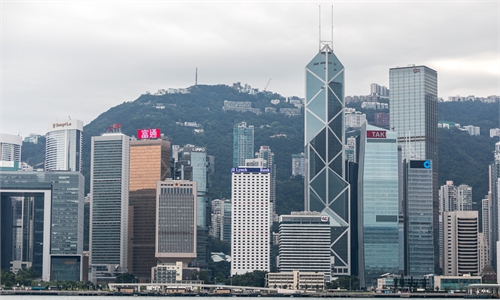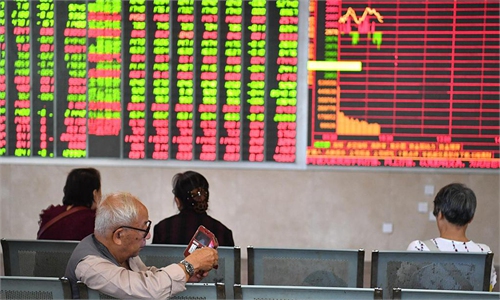
Illustration: VCG
China's capital market has achieved continuous progress and has shown many positive changes over the past ten years. The number of listed companies has grown from 2,494 to 4,733, ranking the second in the world. Total market size has grown from 23 trillion yuan ($3.4 trillion) to 84.6 trillion yuan, roughly quadrupling in scale.
From the perspective of market structure, China has basically formed a multi-level market system including the main boards, the Science and Technology Innovation Board, the ChiNext Board, the Beijing Stock Exchange, the National Equities Exchange and Quotations (NEEQ), and regional equity markets.
Over the past decade, in a changeable market environment at home and abroad, China maintains unwavering confidence and determination to actively promote the development of its capital markets through a market-oriented approach. The goal remains clear: to build into a standardized, transparent, open, dynamic and resilient capital market. Marketization, legalization, and internationalization are the fundamental directions for the development of China's capital market in the future.
Chief among these, marketization is seen as a cornerstone. The reform for the initial public offering system toward a registration-based mechanism is of landmark significance during China's capital market development. The registration reform is to let the market play major roles in stock price setting and company selecting.
The next level after marketization is rule of law across capital markets, which will determine whether China's capital market will develop into an international financial center in the future. An international financial hub must attract global investors with good investment return expectations. The rule of law is a key basis of good return expectations of a capital market.
Internationalization is the ideal goal of China's capital market development. To become a new international financial center, domestic markets must be full open and accessible, which is also an important goal of the country's capital market internationalization agenda.
The main focus of China's capital market in the next decade is three aspects. First is to focus on the reform of the registration system, leverage market-oriented reform as an overarching guide, comprehensively deepen the reform of all aspects of the capital market, and implement the registration system in the whole market at an appropriate time. Second, China should focus on promoting product and system innovation, improve the ability and efficiency of the capital markets to serve the real economy, and promote the structural upgrade of listed companies. Third, further opening-up. It is the most ambitious and most difficult task. The goal is to expand and even fully open up, and strive to build China's capital market into a new international financial center for the global economy.
To measure whether the financial market of a big country is an international financial center, a very important indicator is the proportion of foreign investors. In the US market, foreign investors account for 15 percent. China's economic structure and market structure are somewhat similar to those of the US. With a huge and powerful capital size, a 15-percent proportion is already a high degree of openness for China's capital market. To achieve this goal, China's capital markets require further reform.
Firstly, China should promote the reform of sustainable trading of yuan. Second, to further consolidate China's rule of law system, it is necessary to strengthen the regulatory environment. Any international financial center must be grounded in laws which protect market participants. Third, efforts to improve maintaining policy consistency and stability are key to attracting foreign investors. Fourth, transparency and information disclosure are also important for investors to make decisions. Fifth, the wider economy must encourage continuous innovation. Without innovation, if the economy slows, the attractiveness of the capital market will suffer.
The article was compiled based on a speech delivered by Wu Xiaoqiu, Dean of the China Capital Market Research Institute, at a lecture series titled "China in the Past Decade" held by the Chongyang Institute for Financial Studies at Renmin University of China. bizopinion@globaltimes.com.cn



